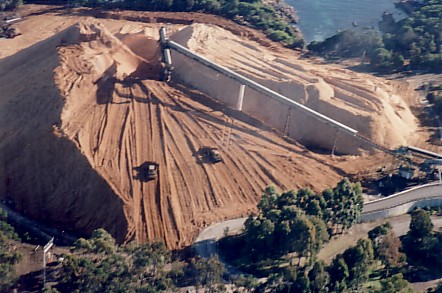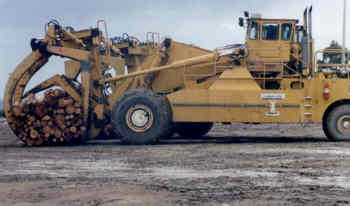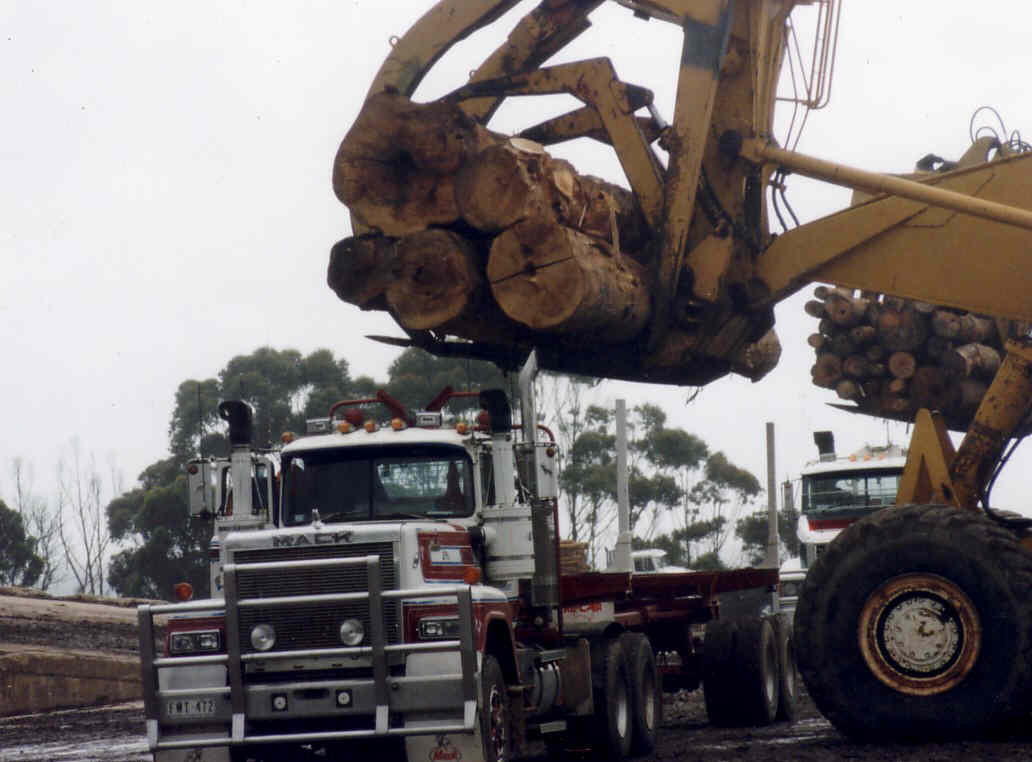
This
site is satire and bears no resemblance to any real company
South East Fibre
Exports Pty Ltd
Australia's leading exporter of native forest hardwood chips.
Home Wood fired power station Order Security Quality Environmental Media Feedback Contact
.jpg)



CORPORATE
INFORMATION
South East
Fibre Exports Pty Ltd (SEFE) is the owner of
the Eden woodchip mill. We are a subsidiary of Japan’s biggest paper
manufacturing company, the Nippon Paper Group Inc.
Eden was Australia’s first woodchip mill, set up in 1969 by the Daishowa
Paper Manufacturing Company of Japan and was the first overseas
operation of that company. Woodchip exports commenced in December 1970.
Nippon Paper took over Daishowa in 2001 and as the Australian
subsidiary, we changed our name from Harris-Daishowa to SEFE in 2003.
Nippon Paper is the majority shareholder with about 60% of the shares.
The remainder are owned by the Itochu Corporation.
The Eden chipmill uses only native forest trees, most cut down solely
for woodchipping. We do not use waste wood and, indeed, cannot process
branches, butts or crowns. We can only chip whole tree logs.
Eden is the only region in New South Wales where trees are felled solely
for woodchipping. This has provided wonderful opportunities for this
companies, with very large scale logging operations, virtual clear felling the norm and a highly profitable operation.
Since our establishment, we are proud to have exported over 35 million
tonnes of native forest chips and virtually wiped out most of the nature
forest in our supply region, mostly to Japan and mostly to paper mills
owned by our parent company in Japan.
After Tax profits in $A
| 1996 | 1997 | 1998 | 1999 | 2000 | 2001 | 2002 | 2003 | 2004 | 2005 | 2006 | 2007 |
| 10,373,613 | 8,726,133 | 11,775,732 | 5,983,063 | 7,763,403 | 6,446,910 | 6,264,013 | 7,265,748 | 5,963,015 | 7,968,447 | 6,839,580 | 10,907,529 |
Environment and Markets
In spite of some serious greenwashing by our parent company, Nippon Paper, SEFE has managed to shrug off most of the environmental reforms which have come along, both in Australia and in the Asia-Pacific market place. Our clever public relations practices ensure we are able to blame greenies for the increasing capilisation of the industry and invoke the welfare of our workforce to stop any reforms. We have even succeeded in conning the Japanese paper industry into believing that the shonky Australian Forestry Standard, devised by the mad former Australian Forestry Minister, Wilson Tuckey, is a reputable form of certification. We thus met the Nippon Paper policy of importing only ‘plantation’ or ‘certified’ chips by the year 2008..
Mind you, they were not too hard to convince: in January 2008 the President of Nippon Paper group was forced to offer his resignation after the company was found out for over stating the ratio of recycled content in a number of its paper products. Although the share price fell by 46% and Nippon was pilloried by the Paper Manufacturers Association, the Japanese government and industrial paper consumers, we offer our record in lying about our recycled content as evidence of the importance we place on recycling. We believe it is so important, we were prepared to lie for 13 years to delude the public and the industry into thinking we were good recyclers.
Exports of woodchips in Green Metric Tonnes
| 1997 | 1998 | 1999 | 2000 | 2001 | 2002 | 2003 | 2004 | 2005 | 2006 | 2007 | 2008 |
| 700,123 | 666,830 | 704,264 | 712,758 | 760,993 | 711,378 | 794,433 | 838,600 | 854,550 | 1.06m | 1,060,000 | 977,074* |
If you are a paper manufacturer with no environmental scruples about where your woodchips come from, we can help you. We are constantly on the lookout for new unscrupulous or gullible customers. We have made shipments to China, Taiwan, Korea and Indonesia and to other paper companies in Japan. Make us an offer!
Our chips are among the cheapest in the Pacific and in Australia.
The low price we can offer is made possible by extraordinarily low royalty payments charged by both Victorian and NSW State Governments. The royalty prices (payments for logs) are well below market rates and have made the Eden chips very competitive against higher priced plantation chips.